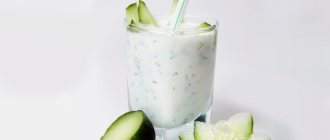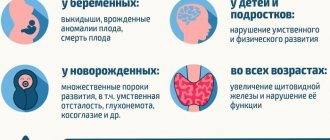Full text of the article:
If earlier vegetarianism was a rarity, and vegetarians could rarely be found in company, now vegetarianism will not surprise anyone. The menus of many restaurants and cafes now have separate sections for vegetarians, and more and more recipes for vegetarian food can be found on the Internet.
Vegetarianism
can be considered a certain cultural phenomenon, and if you try to study it in more detail, you will find that vegetarianism can have various reasons. Some people have to give up animal products for medical reasons, while others do it out of moral convictions. Be that as it may, a person who decides to become a vegetarian must understand what proper nutrition for vegetarians should be, otherwise such a “diet” can be very stressful for the body.
Vegetarian and vegan menu
“Being vegetarian” can be done in different ways. First, it’s worth distinguishing between vegetarians
and
vegans
, these two similar words can be the key to answering the question: “How to feed a vegan?”
Vegetarians, unlike vegans, have a more varied diet. They can eat eggs, honey, dairy products
, and some do not refuse
fish
. Vegans do not accept foods that come from animals, so do not try to offer dairy products or foods made with milk or eggs to a vegan. Vegans will refuse both fish and even honey.
If a person decides to become a vegan in adulthood, and before that he calmly consumed animal products, then this is fraught with negative consequences for the entire body. Excluding animal products from the diet without equivalent “compensation” will lead to a sharp deficiency of many nutrients, vitamins and minerals that are necessary for the proper functioning of the body.
Milk-vegetable diet
This type of diet is considered quite strict, so it is designed for only 6 days. This option cannot be used by people who suffer from lactose intolerance. During this period, it is necessary to exclude all sweets, canned, smoked, flour, as well as salt and alcoholic beverages from food. You should drink at least two liters of pure water without gas per day. A dairy-vegetable diet allows you to lose up to 5 kg.
Approximate menu for the week:
- breakfast: fresh vegetable salad (can be fruit), seasoned with low-fat sour cream or yogurt, unsweetened green tea;
- snack: 300 ml of natural yogurt without sweeteners, a handful of berries;
- lunch: salad dressed with a tablespoon of olive oil or lemon, a glass of skim milk;
- afternoon snack: half a grapefruit, a glass of skim milk;
- dinner: fruit salad of apples, kiwi, maybe a little banana;
- late dinner: a glass of liquid yogurt or low-fat kefir.
To ensure that you don’t have any thoughts of relapse during the period of weight loss, you should ensure a good variety of ingredients. If the restriction in the diet is too difficult to bear, then in the morning you can eat a few spoons of oatmeal with water without sweeteners.
What should be the proper diet for vegans and vegetarians?
Doctors recommend switching to a vegan diet exclusively for adults. This decision should be balanced, and the transition itself should take place gradually
.
It is better to first contact a specialist
who will help you create the right diet based on the current needs of the body. The doctor will conduct an examination, may prescribe a number of examinations, ask questions and tell you about possible contraindications and health risks. The doctor can also tell you which plant products can fully replace animals.
It is better to make the transition to a plant-based diet flexible
. The diet should not be reduced, but changed. If you remove an animal product from the menu, it should be replaced by one or more plant products. For example, meat is usually replaced with legumes, but the body must get used to such a replacement gradually so that the person does not get an upset stomach as a result.
The basis of a healthy nutrition menu for vegans should be cereals, vegetables and fruits,
as well as
bread
and
nuts
.
If a person has previously adhered to the principles of a healthy diet, then such a diet should be familiar to him, because a healthy diet is based on plant products, not animal products, their share should be about 75% versus 25%. However, animal products provide the body with a lot of protein
.
To maintain balance, it will be necessary to form the protein part of the diet by adding legumes, nuts, mushrooms
and
soy products
.
They should be present in every meal and make up at least half of the serving.
Lindsay Nixon's Plant-Based Diet Option
Another weight loss option was suggested by Lindsay Nixon. The plant-based diet based on her book caused a lot of excitement. Her recipes use only low-fat foods. There are a lot of recipes on the Internet using low-calorie foods, and most importantly, all the ingredients are available for almost pennies. Lindsay Nixon wrote a whole book about this weight loss system, including recipes and a plan.
An important point in completing a diet is the correct way out of it. After completing the course, you must adhere to proper nutrition so that the weight lost with such efforts does not return. In the first days, you should not sharply increase the caloric content of your diet; this should be done gradually, over several weeks.
Deficiency of vitamins and substances
Veganism may not be beneficial if you treat it like a fashion and do not consciously change your diet. If you suddenly give up your usual foods and rely on “bread and water,” your body can quickly develop a deficiency
various vitamins and minerals. Some deficiencies can go almost unnoticed, while others can be dangerous, especially when it comes to children and pregnant and lactating women.
The body may experience a lack of protein, calcium, iodine, iron, zinc
and a number of vitamins, the suppliers of which are mainly animal products. Let's look at what various deficiencies can lead to.
Protein deficiency
Protein
- this is the main “building material” of the body; it is necessary for a person to
grow and develop
.
If the body does not receive enough protein from food, the body begins to use the accumulated protein, taking it from muscle tissue. muscle mass
noticeably , and then
a loss of strength
.
A dangerous consequence of protein deficiency can be organ prolapse
due to a decrease in the muscle that fixes it.
To make up for protein deficiency with plant foods, you need to eat more legumes, grains, soy products, as well as mushrooms, seeds and nuts.
Calcium deficiency
Calcium
- This is the basis of
bones, joints
and the entire
musculoskeletal system
.
Calcium is also found in teeth and hair and is essential for maintaining overall skin tone. The main food supplier of calcium is dairy products. If you exclude them from the diet, then you need to add nuts, kale
and
broccoli
,
spinach, sesame seeds, parsley
and
sunflower seeds
.
You can find foods artificially fortified with calcium, such as tofu
and some types
of juices
.
Iodine deficiency
Iodine
necessary for proper functioning
of the thyroid gland
, the easiest way to get iodine is from
seafood
.
Unfortunately, most of the territory of our country is remote from the sea, so residents cannot consume enough seafood and satisfy the body’s needs for iodine, which leads to various diseases of the thyroid gland
and metabolic disorders.
The best plant source of iodine is seaweed
; iodine is also found in
buckwheat
and
millet
. To prevent iodine deficiency, you can use iodized salt for cooking.
Iron deficiency
Iron
plays an important role in organizing the process of saturating the body
with oxygen
.
Animal products contain sufficient amounts of iron, and vegans need to take care not to become deficient. The fact is that in plant foods the iron content is lower, in addition, “plant iron” is less absorbed, and dietary fiber removes metals from the body, so there is a high probability that iron will be excreted from the body in larger volumes than it is supplied. Among plant foods, the highest iron content can be found in porcini mushrooms, parsley, mustard and sesame seeds, peaches, apricots and spinach
. You also need to take into account that iron is absorbed only together with protein and vitamin C.
Zinc deficiency
Zinc deficiency is not so obvious, but zinc
is part of many
enzymes
and supports the functioning
of the human immune system
. Wheat sprouts, pumpkin and sunflower seeds, carrots, sweet peppers, white cabbage, eggplants, onions, garlic, oatmeal, soy products, lentils and other foods are rich in zinc.
Vitamin B12 deficiency
Vitamin B12 deficiency
Vegans have the hardest time replenishing because this vitamin is
only found in animal products
and it is simply impossible to find an alternative in plant foods.
Meanwhile, vitamin B12 deficiency can lead to anemia
. Red blood cells in the body are destroyed prematurely, so organs and tissues are not sufficiently supplied with oxygen. Doctors recommend that vegans look for foods artificially fortified with vitamin B12 or use dietary supplements.
Vitamin D deficiency
Vitamin D
The body is capable of producing it on its own; this happens when the skin is exposed to
sunlight
.
However, during periods when there is not enough sun, it is necessary to replenish the vitamin D deficiency through food. Vitamin D content in plant foods is much lower than in animal foods, however, vitamin D can be obtained from some mushrooms (morels, chanterelles, shiitakes)
, as well as from foods that are specially fortified with vitamin D.
Omega-3 fatty acid deficiency
Replenish the deficiency of Omega-3 fatty acids
It's easiest for vegans because they are found in both animal and plant foods.
Omega-3 fatty acids are needed by the body to regulate metabolic processes
and the proper functioning
of the cardiovascular system
.
You can get them from nuts, tofu and various oils: flaxseed, rapeseed and soybean.
Coconut oil
A vegetable analogue of butter (though with a specific taste and aroma) is very useful for maintaining immunity. Coconut oil contains monolaurin, a naturally occurring fat found in coconut oil and breast milk. It boosts immunity and treats bacterial, viral and fungal infections
Coconut oil is very convenient in culinary terms; it is the only unrefined oil that can be used for frying, as it has a very high burning point.
Exotic poison. Why coconut oil is harmful Read more
What do vegans need to consider?
Adjusting the diet cannot always fully provide the body with the necessary vitamins and microelements, so people, especially vegetarians, in some cases need to take vitamin and mineral complexes
.
This is especially important for women to do during pregnancy and breastfeeding
.
With age, some vitamins begin to be less readily absorbed by the body, for example, vitamin D. It is especially important to monitor its content for people over 35 years of age
.
Only people who do not have relevant contraindications
.
For example, if a person has problems with the functioning of the gallbladder
and
the outflow of bile
, then refusing to consume saturated animal fats can lead to an overflow of the gallbladder and, as a result, to pain and stool disorders. This is just one example of why you need to prepare for a radical change in diet in advance, taking into account the possible consequences.
When preparing a diet, it is necessary to take into account the climatic conditions of your residence.
.
Western experience cannot always be fully projected onto Russian realities, so if you decide to adopt the experience of vegetarianism and veganism from people more experienced in this matter, it is better to choose one of your compatriots, or even better to focus on someone who lives in the same region. Although it is worth adopting only individual tips, since it is better to entrust the preparation of a diet to a nutritionist
. Only a qualified doctor can think through a diet that will meet the individual characteristics and needs of your body and will not harm your health.
Legumes
Beans, lentils, and peas are the main sources of vegetable protein during Lent. And very useful products for the immune system. They improve the functioning of the gastrointestinal tract, liver and kidneys, and are beneficial for blood vessels. Legumes contain B vitamins, vitamin C, magnesium, zinc, potassium, calcium, phosphorus and other trace elements. Lentils contain a lot of beta-carotene. There are omega-3 and omega-6 fatty acids. Legumes are an excellent source of amino acids, from which, in particular, seratonin is synthesized, the good mood hormone.
On beans. How to cook beans and peas for maximum benefit? More details
Tangerines
In winter there are not too many fruits, but citrus fruits and, in particular, tangerines rule the roost. It is an excellent source of vitamin C.
These fruits also contain vitamins D, K, B1, B2, useful minerals and essential oils. Thanks to this composition, tangerines fight vitamin deficiency, increase immunity and are very useful for colds. They even lower your temperature a little if you're sick. And the peel of tangerines eases coughs and improves digestion.
Jam, candied fruits and salad. Recipes for original and healthy dishes from tangerines Read more
Cinnamon
Cinnamon sticks are very useful to add to hot teas, cinnamon powder to baked goods, and to use it to flavor meat dishes.
Cinnamon is a powerful antioxidant that fights cell aging and helps resist viruses and bacteria. Cinnamon is very useful for diabetics, as it stimulates the production of insulin and helps reduce blood sugar levels.
Cinnamon is also good for the blood: it contains cinnamaldehyde, which prevents the formation of blood clots. Cinnamon lowers blood cholesterol levels and reduces the risk of cardiovascular diseases. Finally, the smell of cinnamon improves memory.
What are the benefits of cinnamon? More details
Cranberry
Red berries contain a large amount of antioxidants, which means they protect the body from harmful effects. Cranberry helps the immune system, strengthens blood vessels, and is useful for preventing blood clots. It contains a lot of vitamin C.
Cranberries help cleanse the body, normalize cholesterol levels, and strengthen blood vessels. It promotes the dilation of venous vessels, which improves blood flow and reduces blood pressure.
Winter vitamin. Five reasons to eat cranberries every day Read more
The Best Whole Foods to Eat
Which whole foods offer the most health benefits? Below are the best whole foods to purchase at your grocery store or farmer's market.
Vegetables
When you eat a whole foods-focused diet, make vegetables your base. Here are some popular options:
- Leafy greens such as spinach, kale, Swiss chard and lettuce
- Cruciferous vegetables such as cauliflower, broccoli, Brussels sprouts and cabbage
- Peppers, including bell peppers, cayenne peppers, jalapenos and poblanos
- Summer squash, like zucchini, Calabacitas (Mexican gray) and yellow squash
- Winter squash, like pumpkin, butternut squash, and spaghetti squash
- Root vegetables such as sweet potatoes, burdocks, beets and parsnips
Sprouted grains
You can germinate any grains and seeds, including buckwheat, but you need to take green ones. Since the brown one we are used to was subjected to heat treatment, it will not germinate. Sprouted grains are rich in antioxidants, vitamins E, C, and B vitamins, which are necessary to strengthen the immune system. Sprouted grains also contain essential fatty acids and are rich in plant protein.
Will they save you from cancer and ulcers? What are the benefits of sprouts Read more









